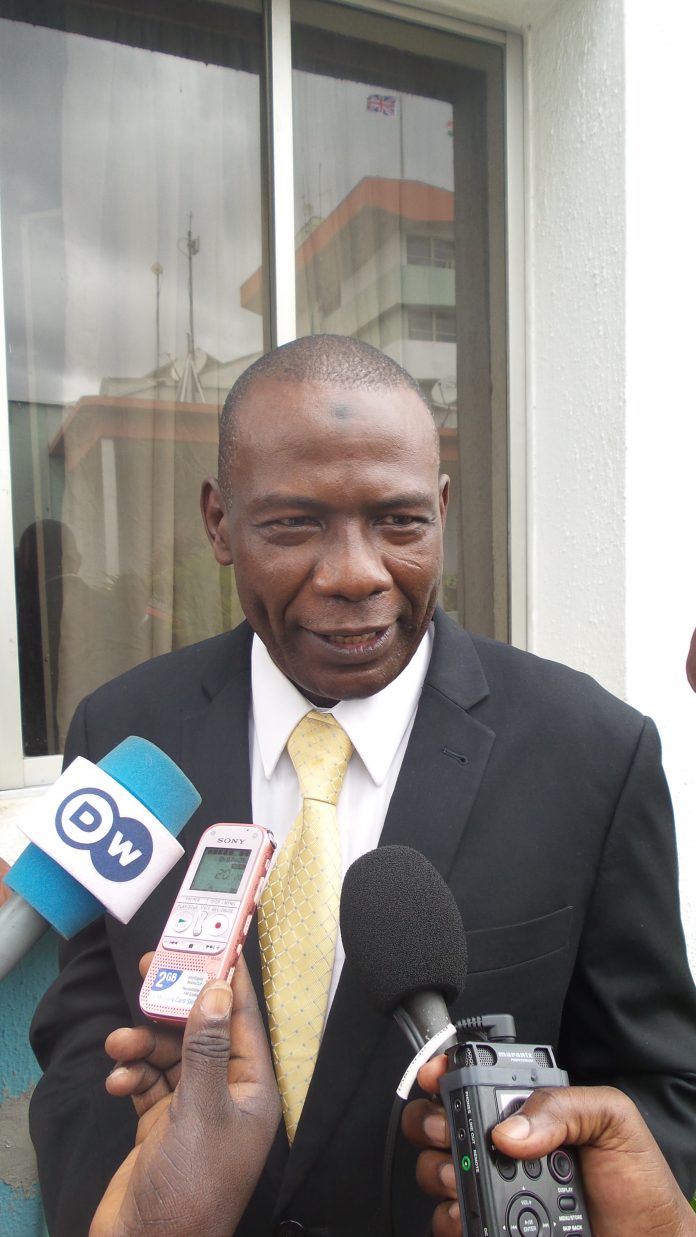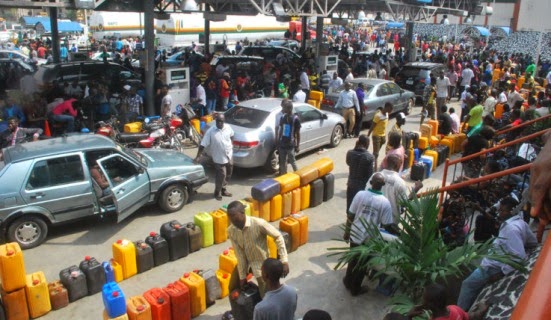There is no gainsaying about the positive effects of the Nigeria Interbank Settlement System (NIBSS’s) Bank Verification Number (BVN) validation portal in helping Bureaux De Change Operators (BDCs) in ascertaining the genuineness of BVNs of customers wanting to buy forex.
MOTOLANI OSENI examines the impacts of the measures on the foreign exchange, as well as at the level of investors’ confidence in Nigeria’s forex market.
The Association of Bureaux De Change Operators of Nigeria (ABCON), in collaboration with the Nigeria Interbank Settlement System (NIBSS) organised sensitization Programmes for Bureaux De Change (BDCs) on the use and deployment of Bank Verification Number (BVN) Validation Portal.
The events, held across the six geopolitical zones, are ABCON’s input to the Central Bank of Nigeria’s (CBN’s) policy implementation and confidence-building in BDCs’ operations.
It backs ABCON’s goal of ensuring that its members operate within set rules even as it wants the CBN to help reduce rising bank charges depleting operators’ capital and profitability.
In the recent time, BVN has become a veritable tool for fighting fraud in the foreign exchange (forex) market. It has also been deployed by the CBN to achieve transparency in forex deals and sustain exchange rate stability.
The impact has been the swift recovery of the naira from over N520/$1 in February to N361/$1 at the parallel market, a development that has continued to marvel financial pundits.
But those that understood the role played by Bureaux De Change (BDCs) in achieving this milestone were not surprised. However, the Nigeria Interbank Settlement System (NIBSS) powered BVN Validation Portal used by BDCs to promote transparency in forex deals has also been helpful.
And the NIBSS had in the last two months, organized sensitization programmes for over 3,500 BDC operators. The programmes were meant to enlighten BDCs on the usage and deployment of BVN Validation Portal for industrial benefits.
Commenting on this development, ABCON President, Alhaji Aminu Gwadabe, said the world is going digital, and BDCs, under his leadership, must stay ahead of the competition by deploying time-tested technology to deliver effective services to their numerous customers.
In view of this, he noted, that the CBN had directed BDCs to validate the authenticity of BVN that clients wanting to buy forex submit to them.
The CBN had directed licensed BDCs to ensure that all their transactions have the BVN of the buying customers. The information must be included in the forex returns to the regulator.
In the case of corporate customers, the BVN of a director of an authorised signatory of the entity must be provided to the BDC. The ABCON boss said the sensitization programme was part of its confidence-building agenda to ensure that BDCs abide by forex rules.
“The programme held in the six geopolitical zones – namely Kano, Lagos, Awka and Abuja, among others is our input to CBN’s policy implementation.
It is an opportunity to take confidence-building in BDCs’ operations to greater heights. ABCON leadership has zero tolerance for its members that breach operational guidelines,” he said.
He, therefore, appealed to the CBN to help BDCs reduce rising bank charges associated with their transactions. “BDCs are charged N1,000 per N1 million transaction and with each operator paying as much as N67,000 for the N67 million monthly transactions.
These charges are too high, and I urge the CBN to help reduce the charges which are becoming huge burden on BDC operators,” he said.
Findings showed that each of the 3,500 BDCs carry out transactions worth N16.8 million weekly, which comes to N67m turnover and N67,000 maintenance fee monthly.
He disclosed that this fee has made it difficult for many BDCs stay profitable in the business because of the rising operating costs and including overhead.
“I appeal to the CBN to address this challenge so that the market will continue to enjoy ongoing stability,” he said. Gwadabe explained that to ensure a hitch-free implementation of the directive, the CBN has continuously provided list of all licensed BDCs to the NIBSS to enable the firm make available the necessary hardware token that would be used by the BDC in accessing the NIBSS portal.
Gwadabe disclosed that all forex-buying customers’ BVNs must be validated by the CBN authorized forex dealer through the NIBSS portal before all transactions are consummated.
He said that ABCON carried out the sensitization to ensure that BDCs effectively comply with the directive. CBN’s Regulation The CBN’s rule requires that a token transaction fee of N100 would be paid for each access on the portal.
The NIBSS will also provide the necessary training manual for an “easy to use” operation of the system,” the CBN said. The CBN also directed that any BDC that fails to provide the required information in its returns, or provide a wrong BVN would be penalised.
First offenders will be required to pay a fine of N1m, while any subsequent violation of requirement may lead to the revocation of the operating license of the BDC.
Benefits to BDCs Analysts have said that BDCs’ compliance with the NIBSS’s BVN Validation mandate is positive for their business and economy.
It is expected that more customers, seeing the level of transparency and data integrity in the BDC’s operation, will be motivated to give them more businesses.
“Even local and international investors, including Diaspora agencies are more likely to commit their funds to BDCs as the sector becomes more transparent,” Gwadabe said.
He explained that in many advanced countries, BDCs are direct agents of International Money Transfer Operators (IMTOs) because of the established transparency and infrastructure in those countries.
The ABCON leader said the BVN Validation portal is one of the infrastructures now available for BDCs to compete favourably and take over the retail-end of the forex market that rightly belongs to them.
According to him, the platform is also expected to promote financial inclusion, and get more people into the financial services net.
“People who are not connected to the financial system but want forexwill have no option than to open account with commercial banks and obtain their BVNs.
It is our own contribution to CBN’s financial inclusion project and determination to take financial services to the grassroots,” Gwadabe said.
BVN validation on NIBSS’ portal NIBSS Managing Director, Ade Shonubi confirmed that the portal was developed to enable BDCs to comply with the CBN’s directive that BDCs customers provide their BVN before buying forex.
He also agreed that such exercise brings transparency in the market and prevents multiple supply of forex to single individual. The BVN captures customers’ biometric data, such as fingerprints, provides unique identification number for the customers and protects their accounts from unauthorised access, identity theft and fraud.
The CBN had ordered that customers desiring to purchase forex through all channels must provide their BVN, which shall be validated by the CBN authorised forex dealer through the NIBSS’ platform before the transactions are consummated.
The regulator said any authorized forex dealer that fails to provide the required information in its returns or provides a wrong BVN would be penalised; this may include the termination of the forex dealership authorisation.
Shonubi said NIBSS had deployed two services on the Web and phone that would make BVN verification for BDCs customers and others as easy as possible. Explaining the process for the exercise, he said in accessing the phone for the verification, the first step is for customers to dial 5651#, enter the BVN code type, date of birth and click on send.
While for the Web portal, the customer needs to type: www.nibss-plc.com.ng, a space will show where to enter the BVN code, date of birth and send.
Shonubi said customers are charged N10 for phone transaction and N20 for the web portal, which the customer would be required to pay either with credit card or internet banking.
According to him, the essence of the verification is to checkmate sharp practices among BDCs operators and customers. He, however, noted that once a customer carries out the verification either on phone or the Web portal, such customer does not need to verify again when dealing programme were taught.
Exchange rate stability The ABCON boss, Gwadabe, praised the CBN’s drive to stabilise the forex market, stem the rampant cases of forex leakages and illicit money transfer from the country.
He said that ABCON aligns with the CBN’s vision of providing a stable framework for the economic development of Nigeria through effective, efficient, and transparent implementation of monetary and exchange rate policy, and management of the financial sector.
Speaking at the 2017 Chartered Institute of Bankers of Nigeria (CIBN) Investiture held in Lagos, CBN Deputy Governor, Financial System Stability, Joseph Nnanna said the regulator never forced the naira-dollar exchange rates down to current position.
He insisted that the recovery of the naira happened naturally and is based on market forces. The support of BDCs to this milestone has also been commended.
Gwadabe said the ABCON will continue to work closely with the CBN to ensure BDC operators abide by regulatory rules. The ABCON under Gwadabe has also pledged to ensure that forex purchased by BDCs are disbursed to end users and for eligible transactions only.
Investors’ confidence Many forex dealers and financial experts believed that strong collaboration between the central bank and BDCs contributed to the success recorded in the forex market, while commending the apex bank weekly FX injections and its earlier creation of the Importer and Exporter FX window, which has helped in restoring investors’ confidence in the nation’s foreign exchange market.
Our check, however, showed that the autonomous forex widow in the month of October recorded total turnover transactions of $4.363 billion in October, 2017.
According to the CBN Deputy Governor, Nnanna stated: “The I&E FX window is truly a mighty success, because its performance has exceeded our expectations.
Within four months the I&E window was introduced, we have seen a volume of over $10 billion. It’s a huge success; and we therefore encourage other countries to adopt this system”.
“We can say we have achieved stability in the FX market and we expect it to remain stable even as we conclude the last quarter of the year. The sustainability of the naira is already evident.”
He further explained that despite the prominent gap between the inter-bank rate and the indicative exchange rate for the I&E Window, known as Nigerian Autonomous Foreign Exchange, NAFEX, and the CBN will not in any way force a convergence.




